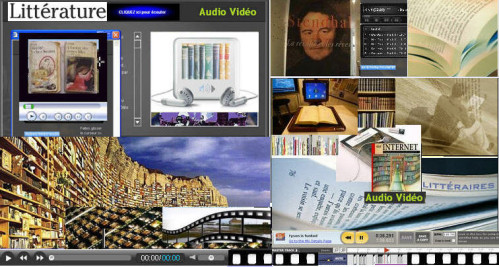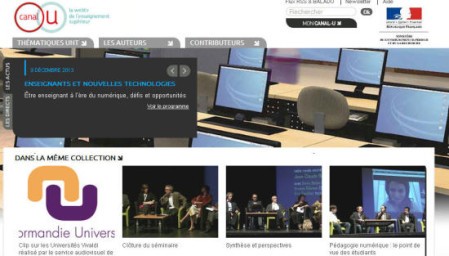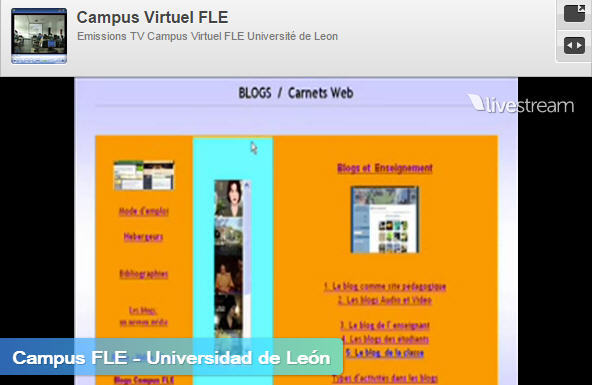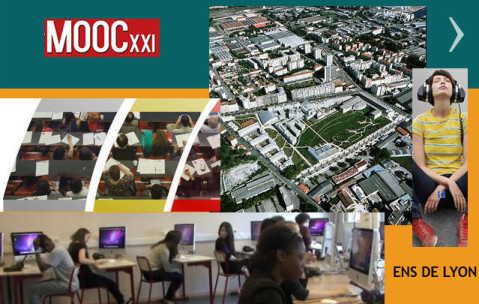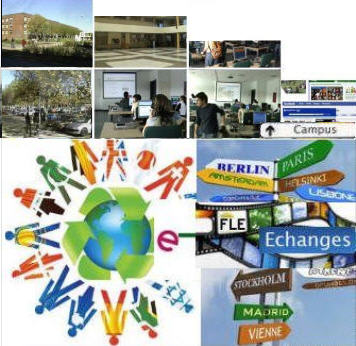
Dans les communautés d'apprentissage des langues les apprenants disposent d'espaces d'expression en ligne et ils peuvent se servir de différents outils de produciton. Le côté réseau social et communication avec les autres utilisateurs est attractif: mise en relation, participation dans les forums, élaboration de podcasts, création de contenu en collaboration. Les médias représentent avant tout une source inépuisable de documents et de lieux de rencontre de la langue cible. Les pratiques pédagogiques lient à ces documents une multitude de tâches et d’angles d’approche qui conduisent l’apprenant à accomplir plusieurs objectifs : perfectionner ses connaissances linguistiques dans les quatre domaines de compétence (CO - CE - PO - PE), acquérir des connaissances socio-pragmatiques et s'ouvrir aux échanges interculturels.
The development of ICT tools and social media influences the way of communication in language teaching and learning. The social media are creating optimal language learning environment and they are making language learning faster, easier and more engaging. On one hand language students should have the opportunity to learn using these new tools and should have a possibility to improve their language skills (listening, reading, writing and speaking), acquire sociopragmatic knowledge and open to intercultural exchanges.
Language learning and social networks (UNESCO - European Commission - ElearningEuropa)
RÉFÉRENCES ET BIBLIOGRAPHIES
Aceto et al. (2010) Pedagogical Innovation in New Learning Communities, European Commission, http://ftp.jrc.es/EURdoc/JRC59474.pdf
Ala-Mutka, K (2010) Learning in Informal Online Networks and Communities, European Comission, http://ftp.jrc.es/EURdoc/JRC56310.pdf
Guth, S. & Helm, F.(dir.) (2010) Telecollaboration 2.0: Language, Literacies and Intercultural Learning in the 21st Century. Bern: Peter Lang.
Dooly, M.& O'Dowd, R (eds) (2012) Researching Online Foreign Language Interaction and Exchange, Bern: Peter Lang.
Lomicka, L. & Lord, G. (dir.) (2009) The Next Generation: Social Networking and Online Collaboration in Foreign Language Learning. San Marcos, TX: CALICO publications.
Thomas, M. (dir.) (2009) Handbook of Research on Web 2.0 and Second Language Learning. IGI Global.
Tomé, M. (2011) Réseaux et médias sociaux sur internet pour l’apprentissage de la prononciation d’une langue étrangère, The Journal of Distance Education, vol. 25, nº 2. http://www.jofde.ca/index.php/jde/article/view/724/1261
Language learning and social media - Apprentissage Langues et Médias Sociaux
http://flecampus.ning.com/profiles/blogs/apprentissage-des-langues-et
Réseaux sociaux en Education - Evaluation Social Networks in Education
http://flecampus.ning.com/profiles/blogs/reseaux-sociaux-en-education
Language learning and social media (elearningeuropa.info) - Resources
http://www.elearningeuropa.info/en/book/resources
Projets télécollaboration Langues - Foreign Language Telecollaboration
http://flecampus.ning.com/profiles/blogs/projets-telecollaboration
Communication / Télécollaboration / Apprentissage Langues
http://flenet.unileon.es/analysecomm2000.htm
Multilateral Online Exchanges for Language and Culture Learning, LLT
http://llt.msu.edu/issues/february2011/index.htm
Réseaux sociaux et Apprentissage des langues
http://flenet.canalblog.com/archives/2009/08/03/14252673.html
Médias sociaux et apprentissage des langues: (r)évolution? - ALSIC
http://alsic.revues.org/2399
Blogs / Réseaux / Langues / Web 2.0 / Education
http://flenet.rediris.es/blog/carnetweb.html
RECHERCHE / LABORATOIRE

